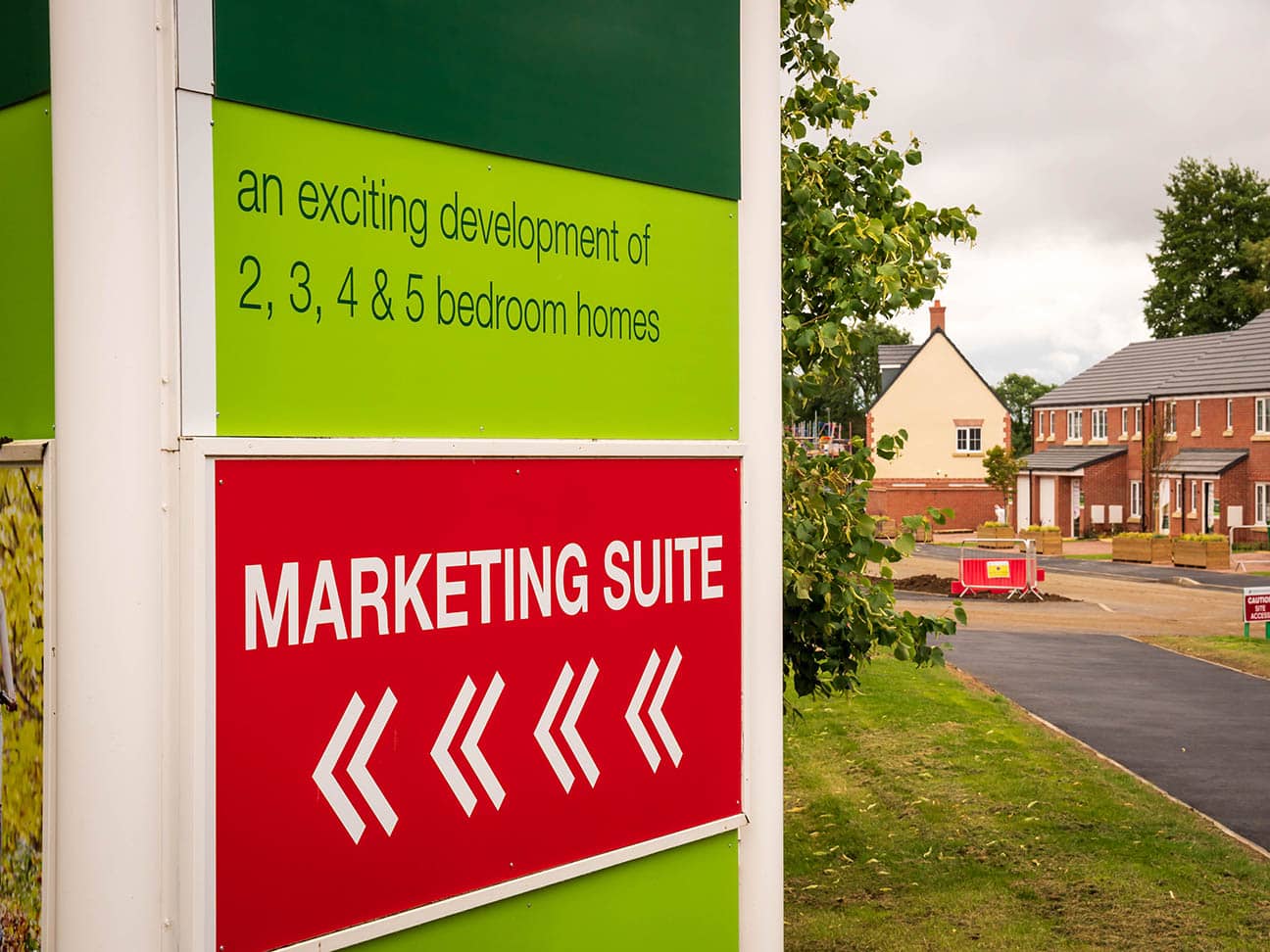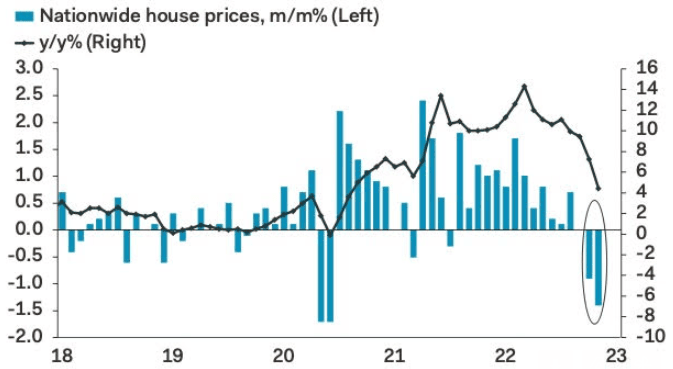House Prices: 8-12% Decline Forecast by Economists
- Written by: Gary Howes
-

Image © Adobe Stock
New data shows UK house prices are falling and economists say this is just the start.
Nationwide says house prices fell in November for a second consecutive month and the average price of a UK home now stands at £263,788, down from £268,282 in October.
The Nationwide House Price Index showed a decline of 1.4% over the month in November which was deeper than the market was expecting and an intensification of the 0.9% decline in house prices recorded in October.
This is the sharpest monthly fall since the lockdown of June 2020 that effectively shuttered housing market activity and confirms higher mortgage rates are starting to make an impact.
The annual rate of house price growth has now moderated to 4.4% in November, a rapid cooling on October's 7.7% growth.
"While financial market conditions have stabilised, interest rates for new mortgages remain elevated and the market has lost a significant degree of momentum. Housing affordability for potential buyers and home movers has become much more stretched at a time when household finances are already under pressure from high inflation," says Robert Gardner, Nationwide's Chief Economist.
Image courtesy of Pantheon Macroeconomics.
UK mortgage rates have risen steadily as the Bank of England raises interest rates, but they spiked after September's ill-fated mini-budget caused a surge in UK bond yields, which are a key component of mortgage costs.
"The market looks set to remain subdued in the coming quarters. Inflation is set to remain high for some time and Bank Rate is likely to rise further as the Bank of England seeks to ensure demand in the economy slows to relieve domestic price pressures," says Gardner.
Nevertheless, Nationwide is not expecting a market rout as household balance sheets remain in good shape, offering significant protection from higher borrowing costs.
Around 85% of mortgage balances are on fixed interest rates, which will protect mortgage buyers from the worst of the recent spike in rates.
Economists nevertheless predict a steady decline in house prices over the coming months.
"November's fall likely is just the start of a longer-term trend, given the slow decline in mortgage rates since their peak in October," says Gabriella Dickens, Senior U.K. Economist at Pantheon Macroeconomics.
Dickens highlights Moneyfacts data showing the average quoted rate for a two-year fixed rate mortgage has fallen by just 50bp since its peak in October, much smaller than the 120bp drop in the five-day average of the two-year OIS rate.
"As a result, the buyer of the average property with a 75% LTV ratio loan still must commit to much higher monthly repayments, equivalent to around 33% of their households’ disposable income, up sharply from 21% at the turn of the year and 22% two years ago," says Dickens.
Pantheon Macroeconomics expects a peak-to-trough fall in house prices of around 8% with a rebound in prices predicted to be underway by the middle of the decade.
"The pace of house price falls has come as a surprise to us," says Andrew Wishart, Senior Property Economist at Capital Economics.
"The cost of mortgage payments for a new home purchase to rocket to a similar level to 2008, pricing many prospective buyers out of the market. But while most accepted demand would drop sharply as a result, the received wisdom was that limited stock for sale would help support prices. That doesn’t seem to be the case so far," he adds.
Captial Economics forecasts a 12% drop in house prices, saying affordability will have to improve substantially before demand can recover and prices bottom out and it
"We expect a continued decline in mortgage rates to play the biggest role in making buying affordable again. The risk highlighted by today’s data is that house prices could fall more rapidly and further in response to the very high current level of mortgage rates," says Wishart.

